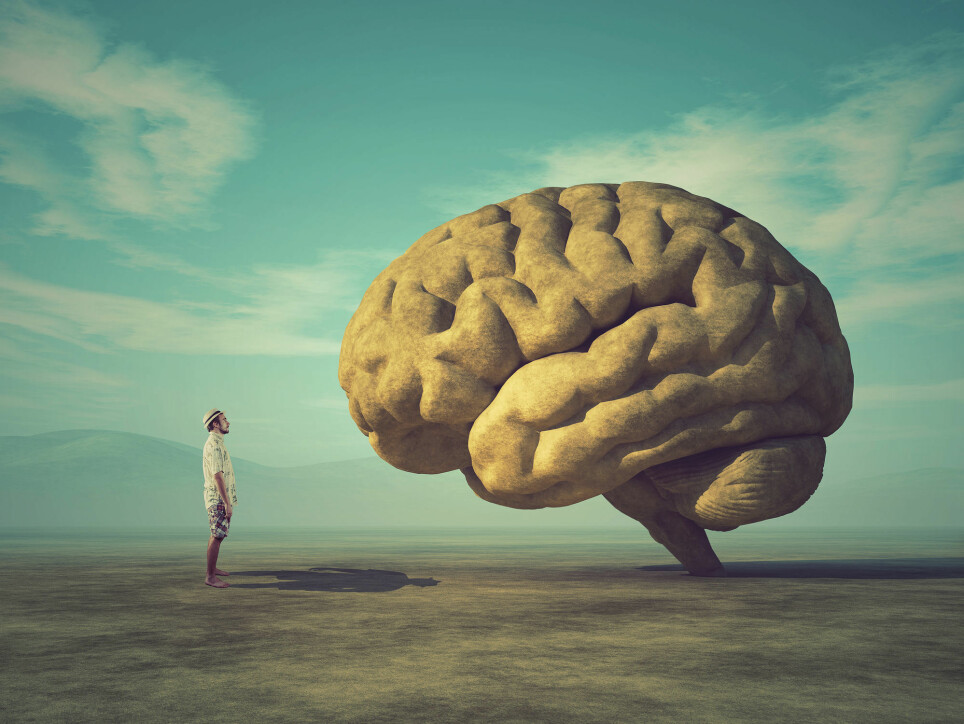
Brain researcher: Here’s why the pandemic came as a surprise to us
The brain’s two systems make it difficult for us to understand dangers we haven’t actually experienced.
When the coronavirus pandemic hit Norway, the Norwegian health service warned that it lacked proper infection control equipment.
And as in so many other countries in the world, we realized that hospitals could quickly become full because we did not have enough respirators or intensive care nurses to treat many patients with COVID-19 at once.
So why were we so unprepared?
The 2009 swine flu pandemic had already illustrated this vulnerability in the health care system.
In 2019, the Norwegian Directorate for Civil Protection reiterated this concern and said that Norway’s risk of being affected by serious infectious diseases was high.
Gaute Einevoll is a professor of brain physics and shared his thoughts on why humans struggle to assess risk at an online seminar organized by the Norwegian University of Life Sciences (NMBU) earlier this month.
Thinking fast and slow
The reason behind this paradox lies in how humans make choices, Einevoll says.
“All people have two systems for making decisions,” he said.
This theory comes from the economist Daniel Kahneman and a number of experiments he has performed with other researchers.
One system is based on intuition and works very quickly. This system enables us to react rapidly to the environment around us, without having to analyse the situation.
Intuition is often useful. If, for example, we perceive a dangerous situation as threatening, without being able to put our finger on what we reacted to, it gives us the ability to react in time.
Intuition can be wrong
But this rapid system can also work against us.
For example, intuition may tell us that we should continue to eat a lot of sweets, even though we rationally understand that this is a habit, wrote Professor Marit Gundersen Engeset from the University of South-Eastern Norway in an opinion piece on Forskersonen.no (in Norwegian).
The second decision-making system works more slowly. This is the rational system, which we use to analyse a situation.
Difference between intelligence and wisdom
Both systems in the brain are important. But since intuition works the fastest, it can be difficult to know when it is important to do a proper analysis.
“There is a difference between intelligence and wisdom,” Einevoll says. “Intelligent people can be very good at analysing things, but don’t quite know when to use this analysis.”
Intuition is often based on previous experiences.
“If you have actually experienced the event, your sense is that the experience is more dangerous. Especially if you have experienced something recently,” Einevoll said.
However, if we have not experienced a similar event ourselves, the brain does not perceive the situation as threatening.
So when the new pandemic came, we simply lacked an intuitive understanding of the risks it posed.
Parallels to the climate crisis and war
Climate change is a good example of this mechanism, Einevoll said.
Although climate experts have sounded warnings, it’s difficult for many of us to take the threat seriously.
Proposals for drastic climate measures are often countered with the fact that they are impossible to implement in practice.
But the pandemic shows how adaptable we are when we take a danger seriously, Einevoll said.
“If we would have said a year ago that we have to shut down our entire society, we would have said that this is completely unrealistic,” he said.
There are also parallels to World War II, Einevoll said.
Many Norwegians were surprised when the war came to Norway, even though in many ways the handwriting was on the wall.
Difficult for politicians to think long-term
But should the politicians who govern the country be better at making risk assessments than the rest of us mere mortals?
Einevoll thinks it is striking that politicians have not taken emergency preparedness more seriously, especially after the Norwegian Directorate for Civil Protection has been so clear that infectious diseases are a major threat.
He thinks part of the explanation lies in the fact that politicians are dependent on being re-elected, which makes it difficult for them to think long-term.
When asked by someone in the audience whether the media's "sensationalism" also influences politicians to think short-term, Einevoll answers in the affirmative.
“Yes, and it's because humans like things that are exciting and different. This is clearly a problem for long-term thinking,” he said.
Contingency lab after the pandemic
After the pandemic, it may be easier for us to understand that preparedness for infectious diseases is important.
Because at that point, we will all have fresh memories of what it means to be hit by a pandemic.
Oslo University Hospital had to work hard to build up its test capacity when the coronavirus came to Norway. Administrators have said the hospital will keep this lab after the pandemic, along with the newly purchased equipment as a kind of emergency lab, according to the news agency NTB (in Norwegian).
“We have never had this capacity before, and we really should have,” Fredrik Müller, who heads the pandemic lab at Ullevål hospital, said to NTB.
Translated by: Nancy Bazilchuk
Read the Norwegian version of this article on forskning.no.
Reference:
Online seminar organized by NMBU: Why did the coronavirus pandemic come as a surprise to us? March 2, 2021
































